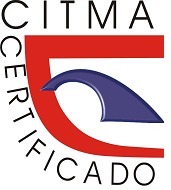Images capture and processing for molecular diagnostics of Cystic Fibrosis
Keywords:
Fibrosis Quística, microarreglos, procesamiento de imágenes.Abstract
Cystic Fibrosis is a hereditary disease present in Cuba and for its confirmatory diagnosis the sweat test is performed as the gold standard, while genetic analysis is used in the prenatal and preconceptional detection of carriers in order to identify the risk of having a child with this disease. Taking this last element into account, genetic analysis should be included in routine diagnosis. The Immunoassay Center has developed a DNA microarray reader in order to improve neonatal screening for the disease; however, it lacks an application to accurately validate the quality of the samples. This work presents a computational tool that allows obtaining the images from the start-up of the reader and processing them, going through the three fundamental stages in the processing of microarray images. It was validated through functional tests that guarantee its correct functioning, allowing to determine the main mutations that cause Cystic Fibrosis in each of the samples studied, with a high degree of reliability.
References
Armas, A., Figueredo, J. E., González, Y. J., Collazo, T., Santos, E. N., Barbón, C., Melchor, A. (2019). Perfil de las mutaciones del gen CFTR en una cohorte de pacientes cubanos con fibrosis quística. Genetica Médica y Genómica, 3(3): 67-73.
Belean, B., Gutt, R., Costea, C., & Balacescu, O. (2020). Microarray Image Analysis: From Image Processing Methods to Gene Expression Levels Estimation. IEEE Access, 8, 10. doi:10.1109
Bello, R., Colombini, M., & Takeda, E. (2015). Análisis de datos de microarrays de dos canales. Retrieved from http://www.dm.uba.ar
Bolón-Canedo, V., & Alonso-Betanzos, A. (2019). Microarray Bioinformatics In J. M. Walker (Series Ed.), J. M. Walker (Ed.), Methods in Molecular Biology, p. 299. Recuperado de: https://doi.org/10.1007/978-1-4939-9442-7
Farouk, R. M., & SayedElahl, M. A. (2016). Robust cDNA microarray image segmentation and analysis technique based on Hough circle transform. Human Frontier Science Program, (12): 235-245.
Gjerstad, Ø., Aakra, Å., & Indahl, U. (2009). Modelling and quality assessment of spots in digital images — With application to DNA microarrays. Chemometrics and Intelligent Laboratory Systems, (98): 10-23.
Kovalevsky, V. (2019). Modern Algorithm for Image Processing: Computer Imagery by Example Using C#. In W. Spahr, J. Murray, L. Berendson, & J. Balzano (Eds.). Recuperado de: https://doi.org/10.1007/978-1-4842-4237-7
R.M. Farouk, & SayedElahl, M. A. (2019). Microarray spot segmentation algorithm based on integro-differential operator. Egyptian Informatics Journal. doi:https://doi.org/10.1016/j.eij.2019.04.001
Shao D, G., Li, D., Zhang , J., Yang, J., & Shangguan, Y. (2019). Automatic microarray image segmentation with clustering-based algorithms. Plos ONE, 14(1): 22. doi:10.1371
SivaLakshmi, B., & Malleswara, N. N. (2018). Microarray Image Analysis using k-means Clustering Algorithm. International Journal of Research in Advent Technology, 6(12): 3796-3802.
V.G., B., & P., M. (2014). Fuzzy clustering algorithms for cDNA microarray image spots segmentation. Paper presented at the International Conference on Information and Communication Technologies (ICICT 2014). www.sciencedirect.com
Wu, E., A. Su, Y., Billings, E., Brooks, B. R., & Wu, X. (2012). Automatic Spot Identification for High Throughput Microarray Analysis. J Bioengineer & Biomedica, S5:005, 1-9. doi:10.4172/2155-9538.S5-005
Published
How to Cite
Issue
Section
License
Copyright (c) 2023 Lorena Diaz Mora, Mirtha Irizar Mesa

This work is licensed under a Creative Commons Attribution-NonCommercial 4.0 International License.













